Content from the Brookings Doha Center is now archived. In September 2021, after 14 years of impactful partnership, Brookings and the Brookings Doha Center announced that they were ending their affiliation. The Brookings Doha Center is now the Middle East Council on Global Affairs, a separate public policy institution based in Qatar.
As Sudan’s protesters ratchet up the pressure on the transitional military council to hand over power to civilian rule, they should also demand an end to their country’s role in the war in Yemen. Such a call is closely tied to the Sudanese protesters’ broader demands for an end to socio-economic inequality and to dictatorship.
While opponents of the war in Yemen have been rightly preoccupied with pushing for an end to U.K. and U.S. military support to the Saudi-led coalition, another potential avenue for bringing the war closer to an end lies in Khartoum.
Decades of social injustice and marginalization in Sudan triggered the months-long protests that ousted President Omar al-Bashir from power in April. They are also the reason that between 8,000 and 14,000 Sudanese paramilitary forces are fighting in Yemen. Sudanese mercenaries, many of them children from Darfur, have been lured into fighting on the ground in Yemen in exchange for financial compensation.
Suffering harsh social and economic difficulties at home, these Sudanese soldiers join the war in Yemen out of desperation. Without prospects for improved socio-economic well-being in Sudan, especially under the authoritarian rule of the recently ousted al-Bashir, Gulf countries offer them up to $10,000 to fight a war that has created the world’s worst humanitarian crisis since World War II.
The Saudis and the Emiratis, who lead the military coalition that has been fighting the Houthi rebels for more than four years, continue to operate remotely, sending their military commands to the Sudanese fighters on the ground. This has resulted in hundreds of deaths of young Sudanese men and boys who took up arms to help feed their families in Sudan, while engaging in a senseless war that has displaced millions and killed tens of thousands of innocent Yemenis through air strikes, mass starvation, and war-induced disease.
The continued involvement of these Sudanese fighters has also helped perpetuate this abhorrent war, together with the political and military support of Western powers, including the U.K., U.S., France, and Australia.
Protesters in Khartoum have made an extraordinary achievement in ousting al-Bashir after more than 30 years of rule, as well as ousting his first successor Lieutenant General Ahmed Awad Ibn Auf after only 24 hours in power. They continue to reject the rule of the transitional military council, now headed by Lieutenant General Abdel Fattah al-Burhan, and to demand a civilian-led transitional government.
Al-Burhan is also the man who has been overseeing the Sudanese forces fighting for the Saudi-led military coalition in Yemen. During a recent visit to Jeddah, his current deputy, Mohammed Hamdan Dagalo (also known as Hemeti), reiterated Sudan’s continued commitment to deploy troops to fight the Houthis in Yemen on behalf of the Saudi-led coalition.
A clear demand to bring back the Sudanese forces fighting the catastrophic war in Yemen would send a powerful message to the current military leaders of Sudan: The plight of the families of those Sudanese fighters is our plight too—social justice. It would also send a powerful message to the Saudi-led coalition: We no longer need to fight your war for you in order to feed our families. Most importantly, it would send a message of solidarity to the Yemenis whose families continue to be starved and killed on a daily basis by the Houthis, the Western-backed Saudi-led coalition, and other warring parties.
The sentiments of freedom, social justice, and dignity that are so alive in Khartoum at the moment are reminiscent of the 2011 Arab uprisings. But they need not be a replica of the painful aftermath that unfolded in countries such as Egypt, Syria, Libya and, of course, Yemen.
It is no wonder that Saudi Arabia and the UAE issued swift statements of support for Sudan’s transitional military council following al-Bashir’s ouster, along with a $500 million aid package. The council is, after all, packed with military figures who support sacrificing Sudanese lives so that the Saudis and Emiratis don’t have to.
This should serve as a wake-up call for the protesters in Khartoum: Demands for freedom and social justice are inseparable from demands to halt the unforgivable commodification of young Sudanese men in the war in Yemen. Sudanese protesters continue to challenge a military bent on holding on to power at all costs. While they continue to hold their ground, renew their demands and negotiate, it is an opportune moment to make clear that Sudan will no longer be held hostage to the deadly foreign policy whims of other countries.
The Brookings Institution is committed to quality, independence, and impact.
We are supported by a diverse array of funders. In line with our values and policies, each Brookings publication represents the sole views of its author(s).

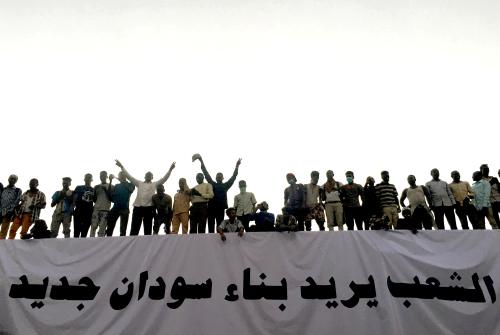
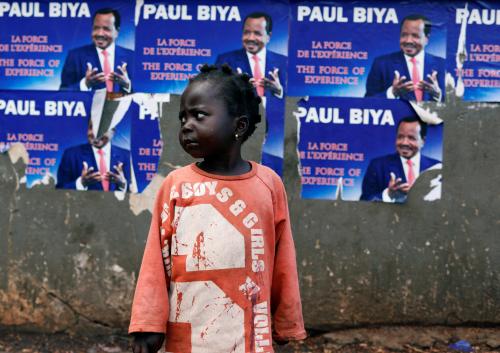
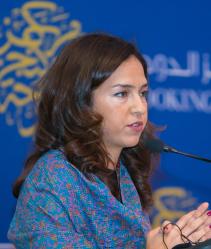
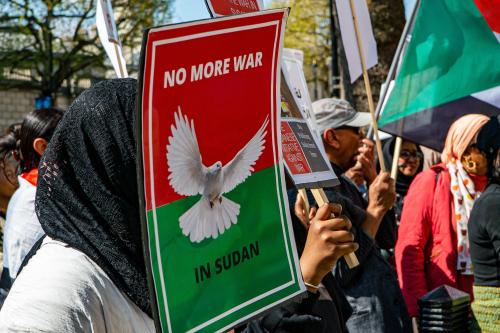
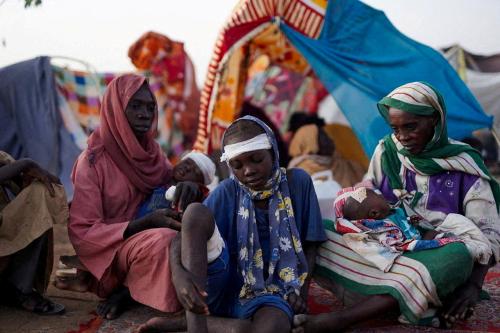
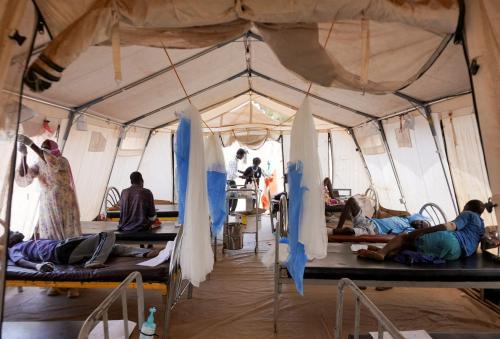
Commentary
Sudan’s protesters can help alleviate Yemen’s tragedy
May 31, 2019